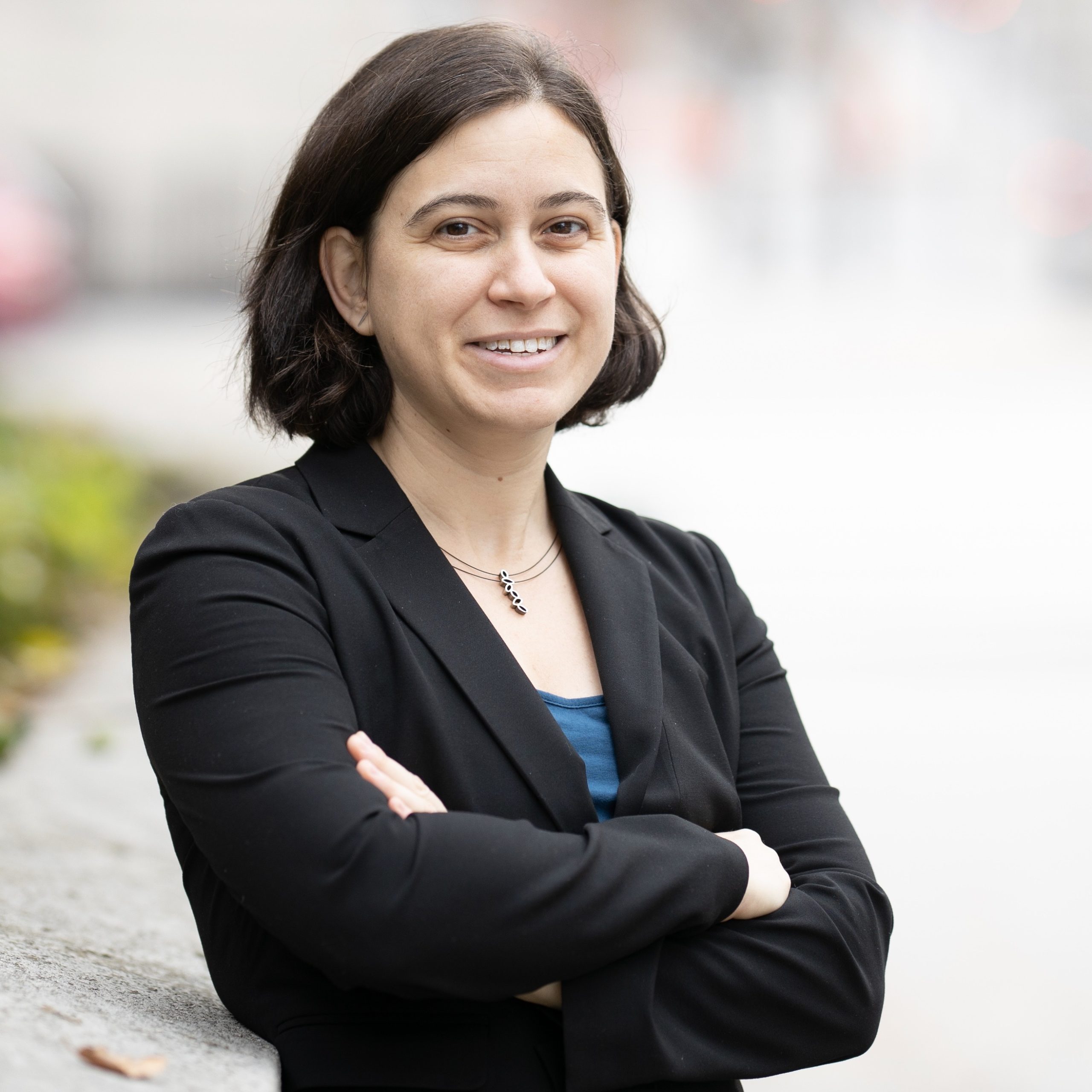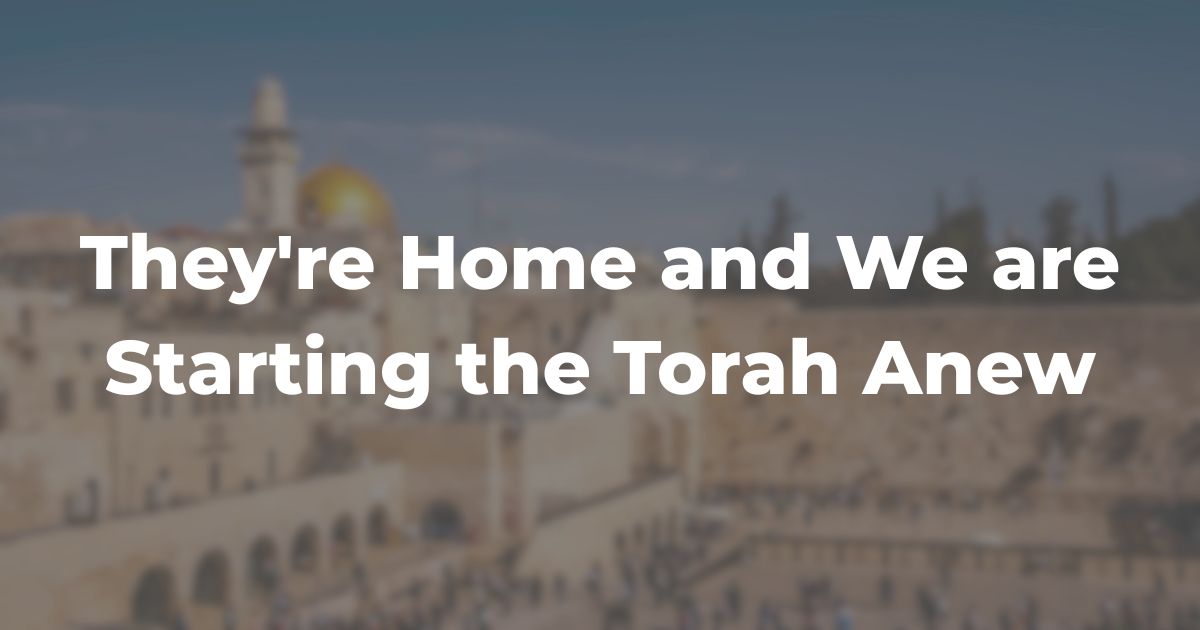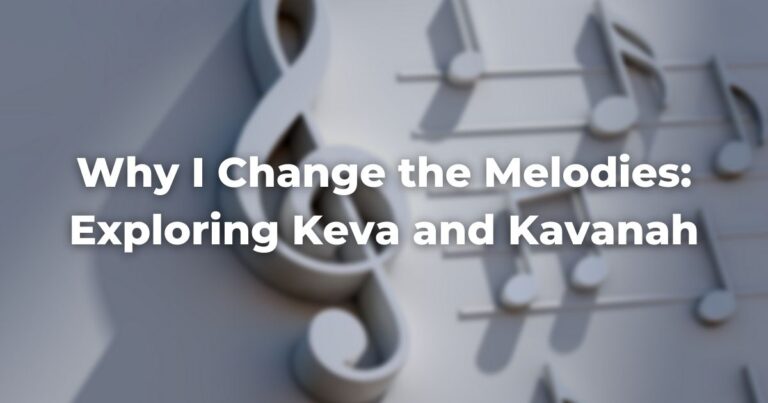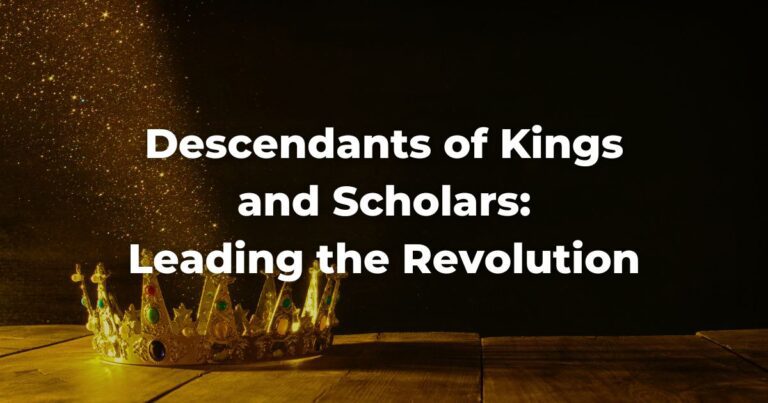We are preparing to conclude our high holiday season with Simchat TorahRefers to the first five books of the Hebrew Bible, the Tanakh, also called the Five Books of Moses, Pentateuch or the Hebrew equivalent, Humash. This is also called the Written Torah. The term may also refer to teachings that expound on Jewish tradition. Read more – the celebration of completing the Torah reading cycle. One of the curious customs of Simchat Torah is that we finish reading the last verse in the Torah and then immediately start over with the first passage of Genesis. Commentators note that this shows our devotion to the Torah: not a day should pass when we are not already in the midst of engaging with Torah.
Yet, each year we read the same parshiyot at the same times of year.
Why? The words are obviously the same.
What’s different year to year?
We are.
Hopefully we’ve grown and had experiences over the years which shape our understanding of Torah. And perhaps this rings especially true this year.
It was on this day, two years ago, that we awoke to a new reality for Israel and the Jewish people. A day that tragically demonstrated our vulnerability and triggered reminders of the past atrocities against our people. We’ve been living in the shadow of that day for 738 days now. I’ve heard Israelis say that until the hostages are returned home, it’s still October 7th, and that the 8th of October can only come afterwards. Finally, finally, finally, that day has arrived.
It’s been a terrible two years. Yet, today we face the possibility of a different future. For the hostages and their families, for IDF soldiers, for civilians in Gaza and for so many others who have been affected by the initial attack and the ensuing war.
As we have for all of Sukkot, we will recite the lines from Hallel:
הודו לה׳ כי טוב, כי לעולם חסדו
Give thanks to Adonai who is good. God’s love and kindness endure forever.
We enter this next Torah reading cycle with gratitude for God and only just beginning to process the slew of emotions we have been holding for the last two years. Each of us is certainly not the same person we were before, and our perspective on Torah in this new cycle will be different from past years. We will read about the actions of our ancestors, the hardships of slavery in Egypt, and the promises that God makes about the Land of Israel. Once again, we will encounter Torah in a new light.
One particular midrashThis word is used in two ways, as both a concept and a literature. As a concept, midrash is the expansive interpretation of biblical texts. The term is used to describe the practice of rabbinic interpretation. As a text, it refers to specific collections of interpretations, particularly from the third to ninth centuries in the Land of Israel and Babylonia. Plural: Midrashim
Read more that I’ve been thinking of today is one from MishnahA collection of rabbinic teachings edited in Israel around 225 CE. Organized in six sedaraim by subject matter and dealing with both ritual and civil law. Both the Jerusalem and Babylonian Talmud are expansive discussions of the Mishnah. Read more Sanhedrin 4:5:
לְפִיכָךְ נִבְרָא אָדָם יְחִידִי; לְלַמֶּדְךָ,…כָל הַמְּקַיֵּם נֶפֶשׁ אַחַת מִיִּשְׂרָאֵל, מַעֲלֶה עָלָיו הַכָּתוּב כְּאִלּוּ קִיֵּם עוֹלָם מָלֵא.
Therefore, Adam (the first human) was created alone, to teach that … anyone who sustains one soul from the Jewish people, it is as if they sustained an entire world.
We have just witnessed the reinstatements of souls 20 times over. Each one a world entire. May they find healing, health and freedom as they begin their lives anew.
May we continue to grow, begin to heal, and be thankful that our Torah contains lessons and inspiration that we have yet to discover.
Author
-

Rabbi Ashira Konigsburg is the Chief Operating Officer for the Rabbinical Assembly and Chief Movement Strategy Officer for United Synagogue of Conservative Judaism. In this combined role, she is leading the Conservative Movement in reenvisioning the future of Jewish life and Jewish communities for the next generation. Rabbi Konigsburg graduated with an MA in Talmud and Rabbinics and Rabbinic Ordination from the Jewish Theological Seminary. A native of South Florida, she spent her undergraduate years at the University of Maryland and has spent many summers in a variety of roles at Ramah Darom in Georgia. Ashira currently serves as a member of the Board of Kehilat Hadar, an independent minyan. Find her on Instagram: @ashirak.
View all posts




